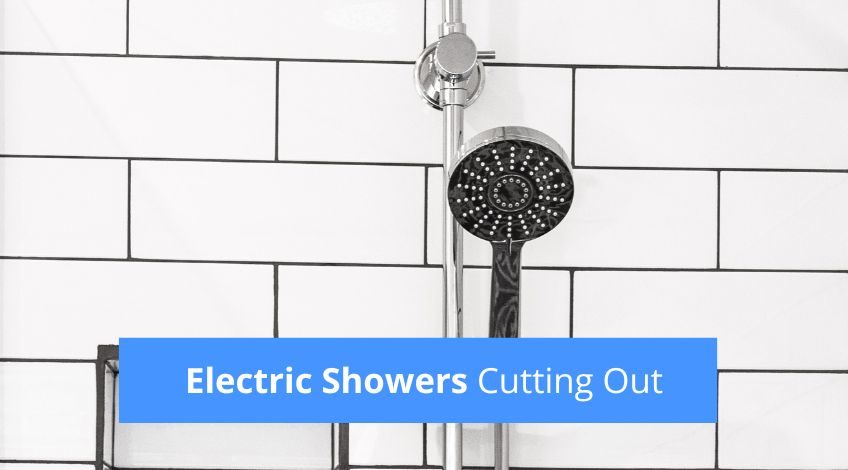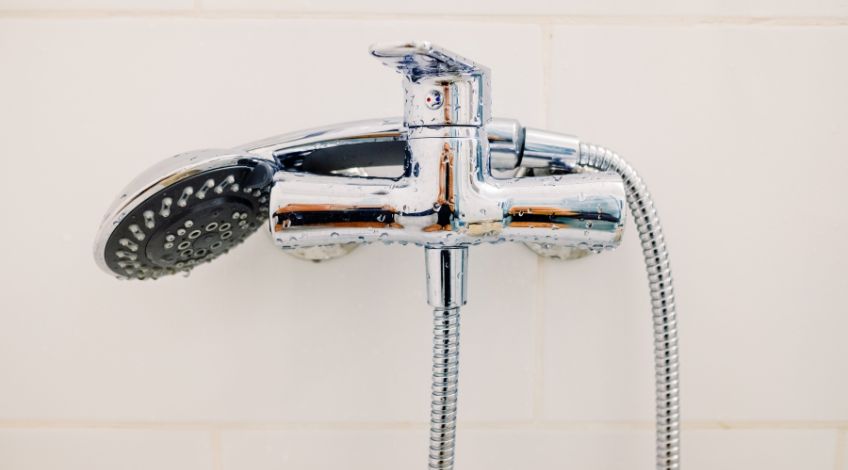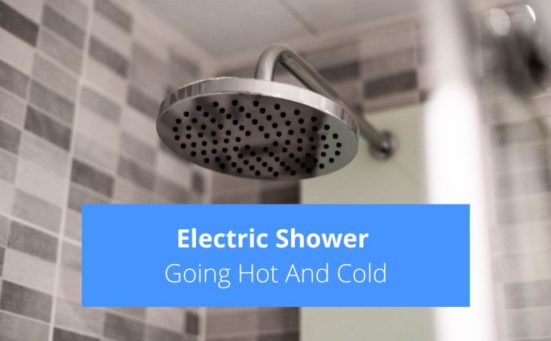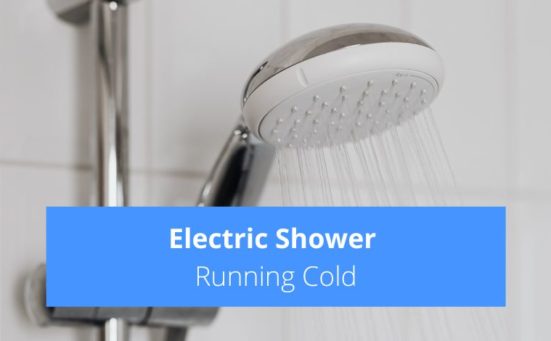
Electric Shower Cutting Out? (here’s why & how to fix it)
If you’ve ever experienced getting fully lathered up in the shower and then, suddenly, the water cuts out completely, you’ll know just how annoying it can be. However, don’t go thinking your’s is an isolated incident, it’s an all too common occurrence and it could be caused by a number of things.
Let’s have a look at what could be causing your shower to cut out. There are many things which could cause your electric shower to cut out, including;
- Low water pressure
There are a few reasons you could be experiencing a low water pressure to your electric shower. It could be that someone has turned the stopcock down, Someone else is using the same water supply at the same time or the local water authority is messing with your supply. - Blocked showerhead
Over time, the small holes in your showerhead can become blocked with a buildup of calcium, especially if you live in a hard water area. More than 75% of homes in the UK and more than 85% of homes in the US do live in areas of hard water which can affect any of your water pipes, showerheads etc. - Twisted or damaged shower hose
In many cases, the shower hose inside the stainless steel hose can become twisted or just simply collapsed. In some cases there is a limescale buildup in the inner hose which could hinder the water flow and cause the shower to cut out.
How Does Low Water Pressure Affect Your Electric Shower?
The pressure of the water that enters your home plays a huge part in the way your electric shower works. The shower is connected to your cold water supply, and the cold water runs through the shower via the flow control valve. The flow control valve only allows water into the shower when the shower is switched on.
If the pressure of the water running into the shower is sufficient, this is detected by the pressure switch which activates the heating element. The water heats up as it passes through the heating element, so the longer the water takes to pass through the heating element, the hotter it will become.
If the water pressure is low, the water will take longer to pass through the heating element. This means the water will be too hot which in turn can trigger the Thermal Cut-Out (TCO) switch. This will then cut the heating element making the water run cold, in some cases it can cut the power to the shower. For more information on your electric shower going hot and cold follow this link.
The British water authority guarantees a water pressure of one bar which is the amount of pressure needed to raise water to a height of 10 metres. To check that your water pressure is one bar or more, simply fill a one litre jug with water and time how long it takes.
If it takes 6 seconds or less, your water pressure is one bar or more. If your water pressure is less than one bar, contact your local water authority or ask a plumber to install a shower pump.
Blocked Showerhead
If the showerhead is blocked the water cannot flow freely which will be detected inside the shower and the unit will cut out. Remove the showerhead from the shower hose and take a close look at the nozzles. They should be clear, if they look blocked, you can try removing any calcium buildup by poking the nozzles with a cocktail stick.
Or you could soak the whole showerhead in a bucket full of vinegar and water in a 50/50 solution for a couple of hours. Then flush the showerhead with water and see if the spray is faster. Or simply replace the showerhead, they’re reasonably inexpensive, can be bought almost anywhere and are easy to fit.
Twisted Or Damaged Shower Hose
This is more difficult to detect as you can only see the stainless steel exterior hose and not the rubber or plastic interior hose. These often get twisted or even collapse which makes them as good as useless.
To check if this is the problem, try removing the shower hose from the electric shower unit, and turning the unit on. If the water flows freely, it’s probably the shower hose at fault. Again, these are relatively inexpensive and can be replaced easily.

What To Do Next?
If you have ruled out all of the above, we would recommend calling in an experienced plumber or electrician. They will be able to dismantle your shower and advise you on what to do next. It could be one of the internal components that needs replacing which might be your next move.
Or it might work out better financially to replace the whole unit. But the best person to advise you will be your electrician or plumber.
LImescale Connector
The most common cause of many of the internal components of the electric shower to break down is a buildup of limescale. It is inevitable that anything which heats up water in a hard water area will eventually get coated in limescale.
This will buildup over time until the part can no longer function as it should. Which will lead to the shower cutting out at some point. Fitting a limescale connector onto the cold feed pipe just before the connection to your shower will drastically reduce the buildup of limescale in the shower unit.
SEE ALSO: Electric Shower Going Hot And Cold? (here’s why & how to fix it)
Frequently Asked Questions
The main thing which causes an electric shower to cut out is low water pressure. This can be because someone else is using cold water in your home, the stopcock in your home has been turned down or the water pressure coming into your home is too low.
An electric shower should last anywhere between 4 to 5 years.
Water pressure does affect electric showers, if the pressure of your water is below one bar, there’s a strong chance the electric shower will not work.
Also, follow us on Pinterest ...



